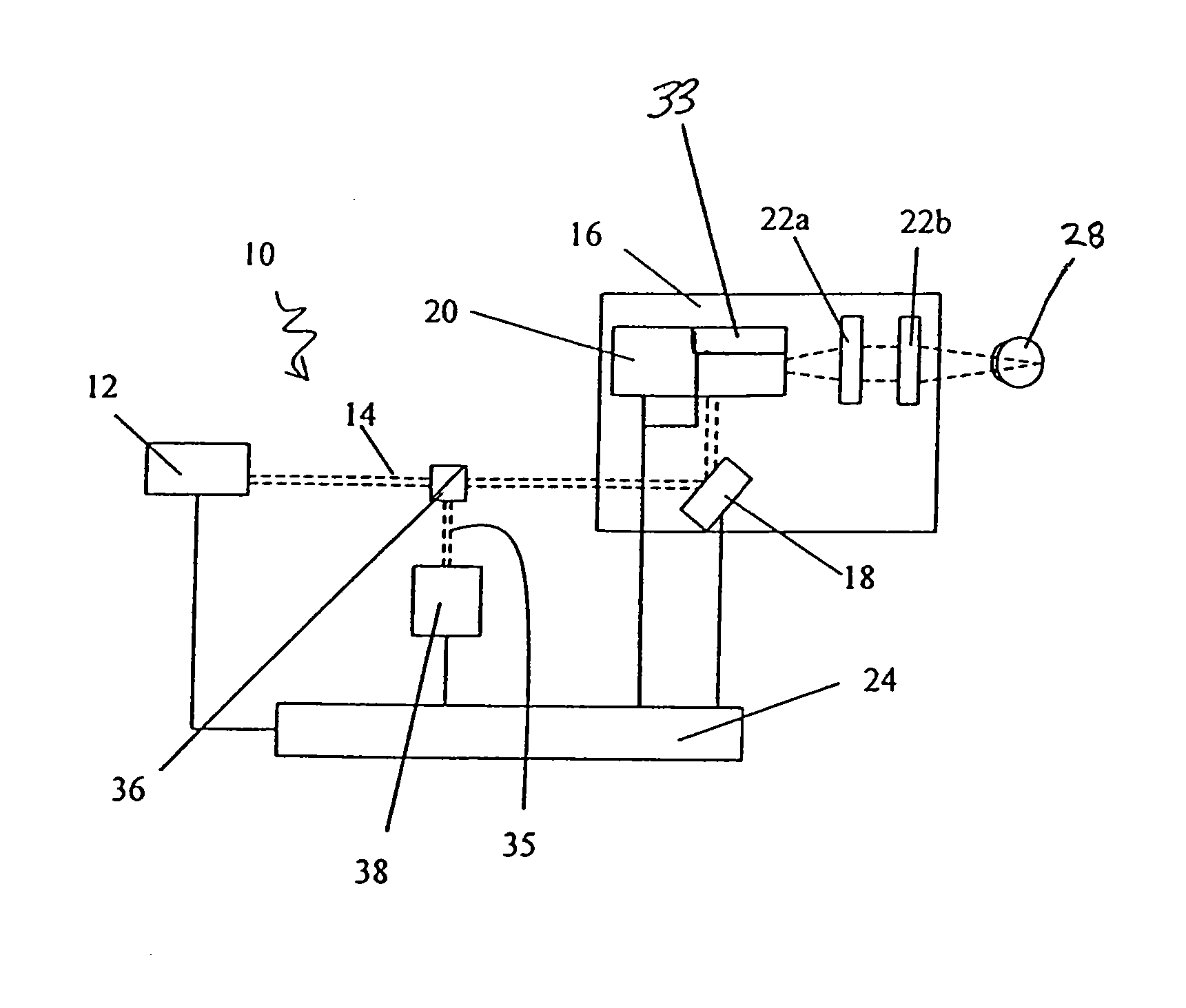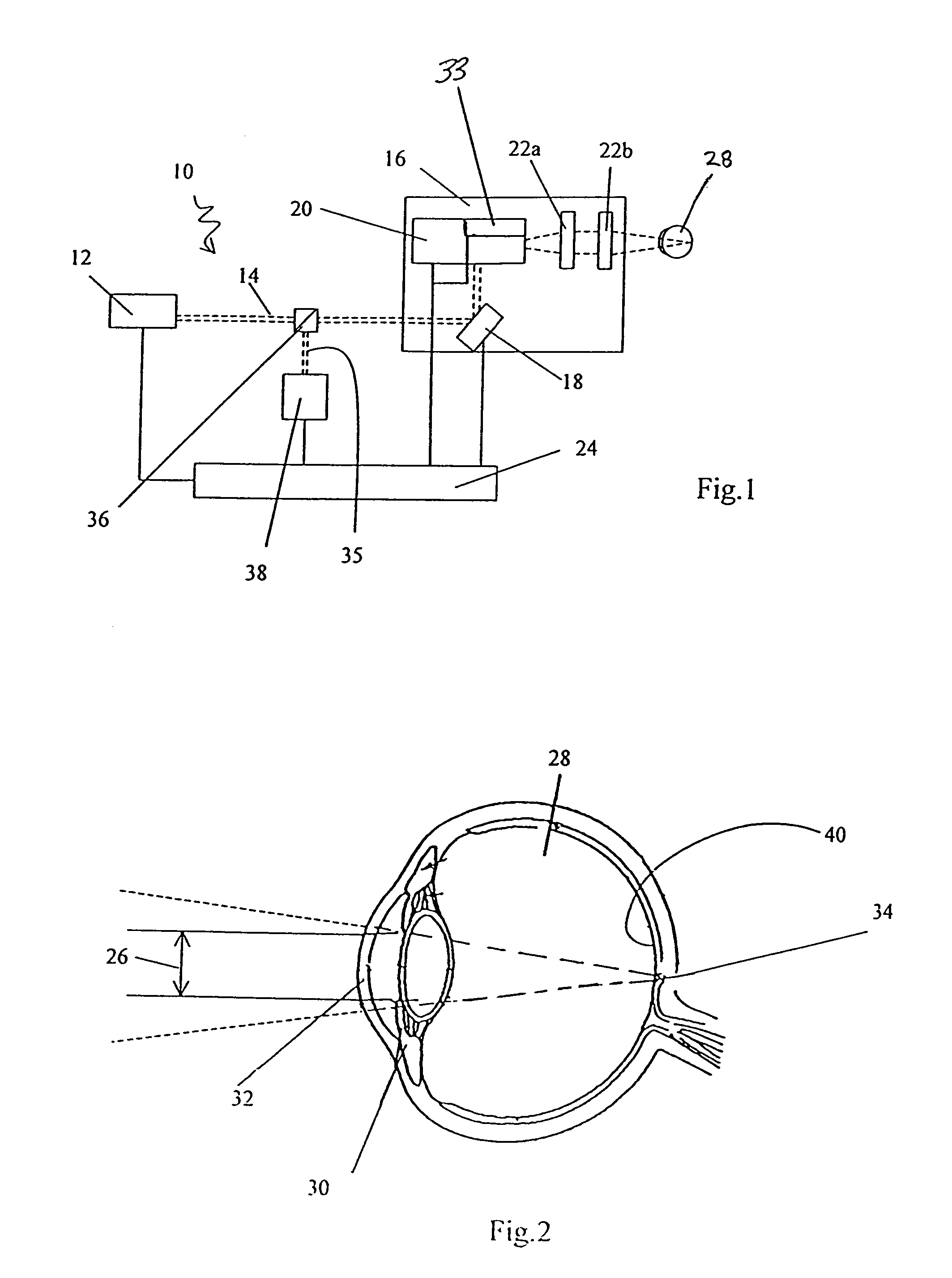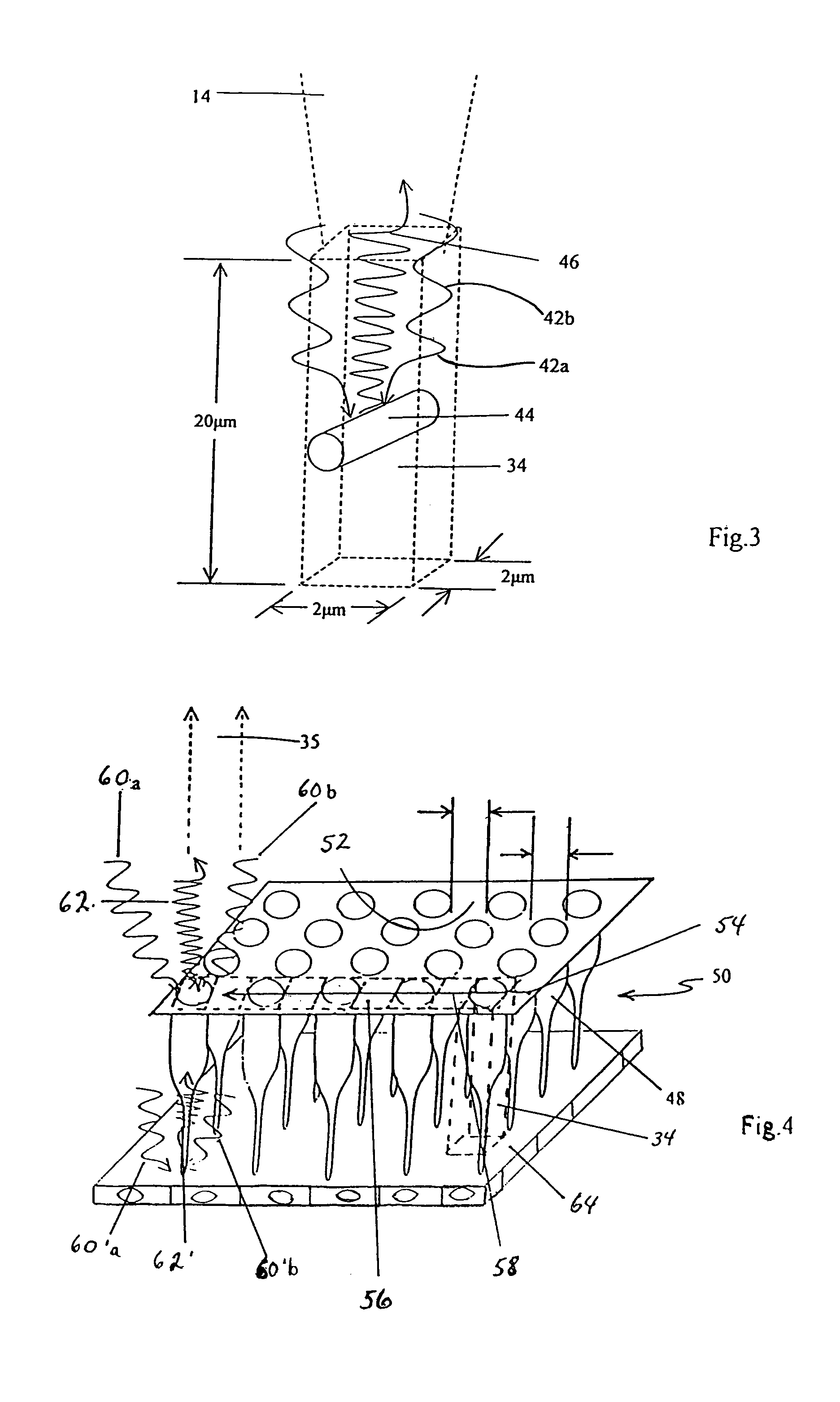High resolution imaging for diagnostic evaluation of the fundus of the human eye
a human eye and high-resolution imaging technology, applied in the field of ophthalmic diagnostic equipment, can solve problems such as potential problems, and achieve the effect of reducing the resolution
- Summary
- Abstract
- Description
- Claims
- Application Information
AI Technical Summary
Benefits of technology
Problems solved by technology
Method used
Image
Examples
Embodiment Construction
[0022]A system in accordance with the present invention is shown in FIG. 1 and generally designated 10. As shown in FIG. 1, the system 10 includes a laser source 12 for generating a laser beam 14. As contemplated by the present invention, the laser source 12 is a femtosecond (fs) laser source 12, capable of generating a laser beam 14 with a pulse repetition rate of 100 million pulses / second. Importantly, the wavelength of an individual pulse of the laser beam 14 is in the range between 700 nm to 1000 nm. In the preferred embodiment of the present invention, the laser source 12 is a tunable laser source 12, and the preferred wavelength of the laser beam 14 is 880 nm. The laser beam 14 has an energy level of 1 nJ / pulse, with a pulse duration of 100 fs.
[0023]As shown in FIG. 1, the system 10 includes an optical assembly 16 for directing and focusing the laser beam 14. In the preferred embodiment of the present invention, the optical assembly 16 includes adaptive optics which comprise a...
PUM
 Login to View More
Login to View More Abstract
Description
Claims
Application Information
 Login to View More
Login to View More - R&D
- Intellectual Property
- Life Sciences
- Materials
- Tech Scout
- Unparalleled Data Quality
- Higher Quality Content
- 60% Fewer Hallucinations
Browse by: Latest US Patents, China's latest patents, Technical Efficacy Thesaurus, Application Domain, Technology Topic, Popular Technical Reports.
© 2025 PatSnap. All rights reserved.Legal|Privacy policy|Modern Slavery Act Transparency Statement|Sitemap|About US| Contact US: help@patsnap.com



